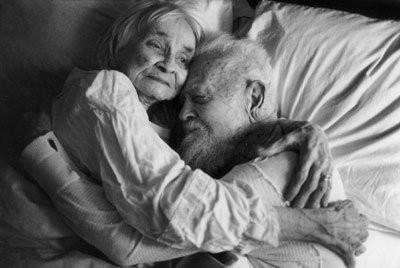Leading with Age
I’m pretty sure I’m on a soap box. Have been for a few years, now. My subject from this modest elevation: The Reclamation of Elderhood ™ .
Like most of us, I remember my grandparents. I remember a few great uncles and aunts. I even remember some of their friends. My maternal grandmother, for example, was born in 1896. I know too little of her life. I know she was raised in rural Georgia – the oldest of three girls whose mother died when she was 5. I know her step mother was kind. I know that by 15, she was prepared as a school teacher and taught in a one-room school house and that she spent her life as an active, greatly beloved and respected member of the small rural Mars Hill Presbyterian – the church one of her grandmothers had founded. I know that the evening I arrived from Oregon at the funeral home where her body lay in that perfect salmon-colored dress and finely finished coffin, two Elder African American women stood outside dressed in their Sunday finery and, when I asked if they were here for my grandmother, asked in return if they might come in to pay their respects, “Miss Mary taught us to read.”
There is a strong sense in the United States that as people age they have increasingly little to offer. This seems especially status quo among people of European ancestry, but is spreading now, my friends tell me, to affect older people of groups with traditionally high value on age – on Elderhood ™ .
This existing order of things – status quo, defined on one google search result as present customs, practices, power relations – perpetuates things like food and music preferences, like ideas of physical beauty or what sex means. There’s variation, but there are also standards — rats and bugs aren’t usual food preferences, kazoos are cute but don’t qualify as quality musical instruments, willowy blondes in their 20’s continue instantly understood as beautiful and quick associations to the word sex still tend to contain specific male and female body parts. We don’t really think about these things — and even if we don’t completely endorse what is customary, we nonetheless hold social mores as points of comparison.
Same deal with age. Custom, practice and power in our country place advancing years in inverse relationship with three things: credibility, influence and .. as a result .. value. As a direct and tenaciously self-perpetuating result, we avoid all associations with age for as long as we can. Vast expansions in the economies of cosmetic surgery and extreme dieting stand in contrast to rapid decreases in the services to and even the presence in everyday community of old people.
Here’s my argument. These people – like my grandmother and so many of the older people I’ve known in my life – hold answers to the circumstances that trouble us most here in the second decade of a new thousand-year epoch. In very many cases, they’ve been discounted and pushed aside enough not to bother with saying much. You’d do the same thing. Maybe you already do.
And that’s the point. I’m standing on this box, using this blog to say two things —
First, I need Elders.
Really. There is too much that continues too baffling about being in a life. I need to hear from people who have lived more, have seen more, have determined ways for living and loving well in a world that seems overly full with threats to both. Even if there are no reliable recipes – a conclusion I’m reaching this far into my own life – I want to hear from Elders who have found ways of being mostly happy, mostly peaceful in all the uncertainty.
And second, I want to be an Elder, myself.
I want to reclaim the inescapable fact of my own aging. I want to offer whatever I learn from my years — not that there’s any flawless authority to be achieved and patronizingly proffered. Quite the opposite, really — I want to learn to live and speak in the ways I’m looking to learn from the Elders in my life.
Age is change. Every day is change. You know it – I know it. Because this is so, and because we seem to struggle and do such crazy damage as we resist and fear change, I want to reclaim the leadership that is right there in the people who have the most years.
And I want to learn from them so I can pass along the wisdom they pass to me.
 Clare Consultation, LLC
Clare Consultation, LLC
Mary, well done. Move over on your soapbox – ” I need..” and “I want…” also. Thanks for the elegance of your words. XX
Amen!!!